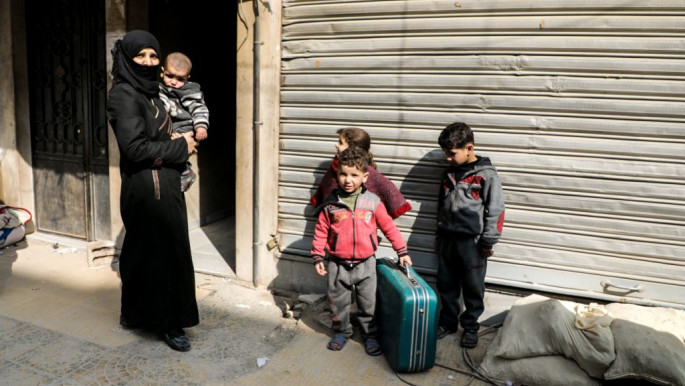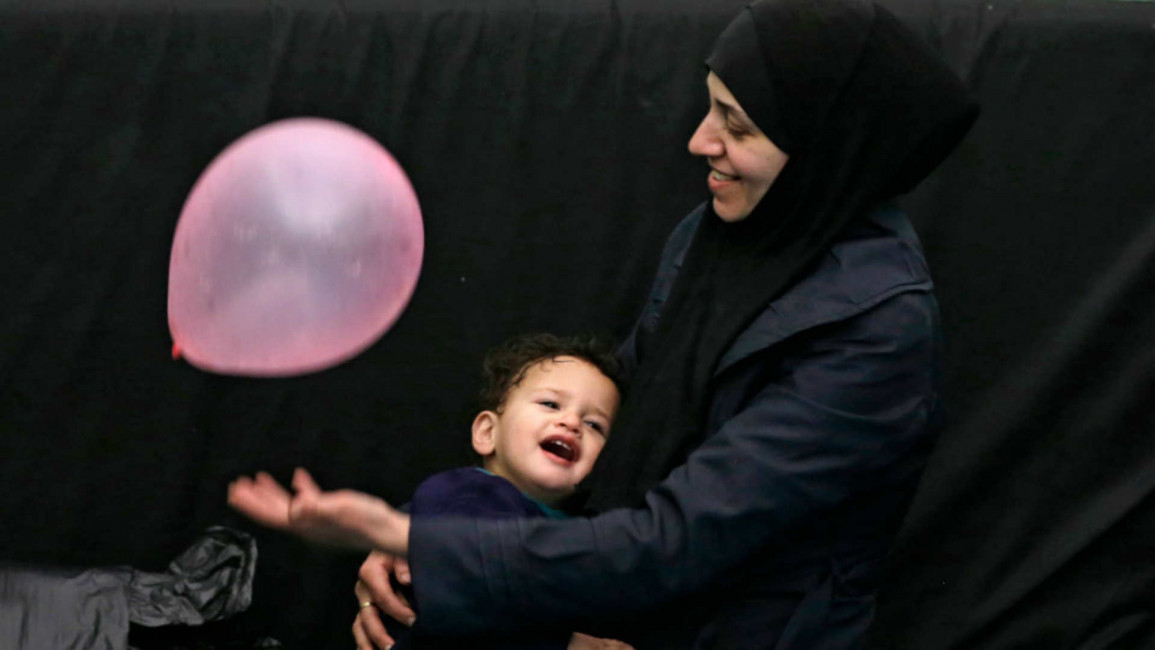
Spare a thought for mother's day in Syria
We recently marked International Women's Day and just a few days ago, mothers up and down the UK were treated to breakfasts in bed, cards and flowers from appreciative children celebrating Mother's Day.
For Syrians, today - 21 March - is mother's day, known as 'id-al-um'. It comes just one week after Syrians will have been forced to mark the seventh anniversary of this the country's violent civil war.
I am a Syrian human rights activist who was forced to flee the country after reporting on the Assad regime's human rights abuses. While I am fortunate enough to be here and able to write this, I ask you to take a moment to think about the mothers in Syria who have suffered seven long years of war and conflict.
Syrians have suffered under the cruelty of Assad and the bombs of Putin, as well as the barbarity of terrorist groups like al-Qaeda and Islamic State (IS). Hundreds of thousands of families have been torn apart, children kidnapped, and entire cities destroyed, leaving millions homeless.
Countless women and children have been killed, tortured and raped. Under IS, young girls were sold into sexual slavery and those women "too old" to be of sexual value were shot. In Eastern Ghouta, mothers have watched as their children are crushed by rubble.
Years of conflict have left many women widowed, struggling to support their families as they find themselves head of the household. The effects of poverty and gender inequality have only worsened the threat of sexual exploitation, with sickening reports of cases of humanitarian aid being traded for sex.
 |
|
| Many Syrian women have found themselves heading families alone after their husbands were killed or disappeared [AFP] |
Sexual violence is a tool of war and the UN Security Council considers it a war crime. But rather than give up and think there is nothing we can do, we must channel our anger into positive calls for democracy.
The United Nations must protect women and girls from the consequences of armed conflict and we must continue to promote women's role in shaping Syria's future.
It is more important than ever that we ask international organisations to do what they can to protect vulnerable people still trapped in this conflict. Charities such as Syria Relief are supporting women through their livelihood projects, so they can become self-sufficient. They are also supporting children who have been orphaned by the horrors of this war.
I am so grateful to be raising my son in the UK, a country where he will grow up knowing that women and men are equal. Like most children, he has big dreams of what he wants to be when he's older, but he knows that many have not been as lucky.
So today, I ask people to spare a thought for the mothers left behind in Syria.
Read more: Assad's grave-robbing echoes Nazi-era abuses
Please don't give up on Syria or lose faith in the critical role so many humanitarian organisations do play. We draw strength from the hopes of others and continue to work towards a future where Syria is free from war.
We must not stop trusting in humanity, nor stop trying to help those who need our help now more than ever.
Bahia Mardini is a human rights campaigner and the founder of Syrian House, an organisation dedicated to helping Syrians in the UK access information and support.
She specialises in human rights and democracy in the Middle East and was a media consultant in the National Coalition for Syrian Revolutionary and Opposition Forces, and was the director of the media office of the opposition delegation in the peace negotiations in Geneva 2012.
Follow her on Twitter: @BahiaMardini
Opinions expressed in this article remain those of the author and do not necessarily represent those of The New Arab, its editorial board or staff




